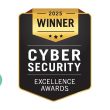With the cost of cybercrime set to surpass $10 trillion in the coming months, is it time that VPNs become an everyday essential? According to Statista Market Insights, the total global cost of cybercrime will reach $13.8 trillion by 2028, crossing the $10 trillion milestone in the next year.
Such baffling figures are likely to spark renewed debate about the safety of emerging technology like quantum computing and generative AI (GenAI), all of which could become a powerful tool for cybercriminals to steal personal information and obtain confidential data on an unprecedented scale.
While the quality of tools available to malicious threat actors and shady organizations is strengthening, so is the quality of enhancements that can help combat cybercrime. In particular, we’re seeing traditional virtual private networks (VPNs) become considerably more powerful as digital threats continue to strengthen.
As a result, VPNs are becoming more sophisticated in terms of their entertainment and security credentials. Let’s take a deeper look at how the technology is staking its claim as a key internet companion for users:
Defining the Modern VPN
Virtual private networks connect to a user’s device and network through an encrypted tunnel. This helps encrypt the user’s online activity while hiding their IP address from view, instead replacing it with the IP address of the private server that the user connects to.
Today, many VPNs use AES-256-bit encryption (PDF). Using internet protocols that place the data in packets to send in a logical order, VPN users can send and receive data in confidence. Should a problem occur, most VPNs are equipped with a kill switch that will instantly close all windows or apps to ensure protection and anonymity for users.
Although we traditionally think of VPNs as desktop tools, they can be utilized for smartphones and a range of other devices that connect to the internet. VPNs are also widely used at an enterprise level, with many firms identifying its security features as essential practice in handling confidential information.
In addition to their high-level security credentials, VPNs are also great for accessing greater quantities of entertainment, and many individuals utilize virtual private networks to geo-shift their location to access more content from streaming services like Netflix, Amazon Prime, and Disney+.
For those looking to enhance their online experience affordably, exploring the best VPN deals can provide access to premium services without stretching your budget, making it easier to enjoy secure and unrestricted browsing
Cybersecurity is set to become a major technological talking point in the coming years as geopolitical conflict and new technologies cause us to question just how secure our data is online. However, we’re already seeing VPN technology answer many of the questions of tomorrow as they become more sophisticated and powerful.
Tapping into the Security of Tomorrow
The sustainability of VPNs is assured by the technology’s commitment to privacy and security. While the strongest encryption systems used by VPN services are based on AES-256, we’re set to see these processes become considerably more powerful in the coming years.
As quantum computing continues to grow in its development, there can be legitimate concerns over the ability of hackers to illegally access data and private networks more successfully using sophisticated online tools.
This issue has become more pertinent in the age of work-from-home (WFH) where more private information is shared away from the confines of company servers.
With more employees working and sharing information remotely, the importance of the VPN is transforming. Virtual private networks will be required to add a layer of security for corporate data that’s immune to the strongest levels of scrutiny.
For businesses, the average cost of a data breach was $4.45 billion, representing a 15% increase over the past three years.
Privacy in the Age of Decentralization
One of the biggest solutions that we’re likely to see reach individuals and enterprises alike is the rise of the decentralized VPN (dVPN). These tools operate similarly to VPNs, but on a peer-to-peer network which is based on a distributed architecture rather than traditional centralized servers.
Instead of routing internet traffic through a single server, dVPNs would leverage the computing power and bandwidth of many different devices, or nodes, in the network to create a distributed secure, and private connection.
You may be familiar with blockchain as the underlying technology that powers cryptocurrencies like Bitcoin, so how can it be applied to virtual private networks?
Well, dVPNs use modern encryption protocols alongside distributed ledger technology to establish secure connections instead of having to rely on centralized servers.
When a user connects to a dVPN, their traffic is encrypted and routed through multiple different nodes within a network, generating unprecedented levels of privacy to prevent threats from digital eavesdropping, surveillance, and censorship due to the multiple nodes that data travels through making it more difficult to track the origin and destination of data.
Astonishingly, Market.us data suggests that the global blockchain market is set to grow at a CAGR of 68% to a total value of $12.89 trillion by 2032. It’s this rapid growth that’s likely to deliver the emergence of decentralized VPNs sooner rather than later.
Next-Generation Entertainment
It’s worth looking at the wider capabilities of VPNs and how they can improve in a growing technological environment. In the future, we’re likely to see VPNs provide more comprehensive geo-fencing and geo-shifting capabilities that will access content and services that would otherwise be geo-locked for users.
This will be a perk of VPNs as artificial intelligence (AI) infrastructures become more commonplace throughout the industry.
One of the biggest draws for VPNs aside from their security credentials can be found in the digital freedom they afford users. Thanks to AI, VPN services will soon be capable of offering access to entertainment and streaming services intuitively, by displaying the content that can be accessed based on each region in which the user wants to access geo-locked content.
This means that a VPN would become more than just a cost-effective tool for accessing entertainment on demand, particularly when paired with streaming tools like Amazon’s FireStick. There are free FireStick VPNs that enable you to access a far greater range of shows, movies, and other content from all over the world privately and cost-effectively.
Unprecedented Anonymity
In an online landscape where targeted ads and tailored content serve as a regular reminder that our activity is far from private, VPNs and dVPNs are fast becoming great tools for maintaining a sense of comfort when browsing.
By masking your IP address, VPNs pose no threat to exposing your true location, making it an essential tool for accessing international streaming services or bypassing internet censorship laws in your country.
As the geopolitical landscape becomes increasingly uncertain, VPNs will play an invaluable role in keeping internet users in touch with one another while supplying them with essential content that could otherwise be blocked locally.
With fears over online surveillance as strong as ever, virtual private networks are becoming more valuable than ever. As their sophistication grows, so too will their functionality in keeping us safe, comfortable, and entertained when online.
RELATED TOPICS
- Netflix errors – How to fix them
- Everything You Need to Know About Amazon Fire TV Stick
- New Soap2day Domains Emerge Despite Legal Challenges
- Best legal free online streaming sites for movies & TV show
- Exploring the Differences Between Residential Proxies and VPNs
- Mullvad VPN Introduces Mullvad Leta: A Privacy-Focused Search Engine









